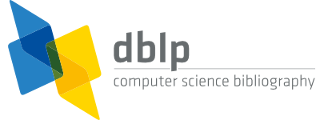
DBLP is a computer science bibliography website. Starting in 1993 at Universität Trier in Germany, it grew from a small collection of HTML files and became an organization hosting a database and logic programming bibliography site. Since November 2018, DBLP is a branch of Schloss Dagstuhl – Leibniz-Zentrum für Informatik (LZI). DBLP listed more than 5.4 million journal articles, conference papers, and other publications on computer science in December 2020, up from about 14,000 in 1995 and 3.66 million in July 2016. All important journals on computer science are tracked. Proceedings papers of many conferences are also tracked. It is mirrored at three sites across the Internet.
An annotation is extra information associated with a particular point in a document or other piece of information. It can be a note that includes a comment or explanation. Annotations are sometimes presented in the margin of book pages. For annotations of different digital media, see web annotation and text annotation.
Self-management is the process by which computer systems shall manage their own operation without human intervention. Self-management technologies are expected to pervade the next generation of network management systems.

Timothy Wilking Finin is the Willard and Lillian Hackerman Chair in Engineering and is a Professor of Computer Science and Electrical Engineering at the University of Maryland, Baltimore County (UMBC). His research has focused on the applications of artificial intelligence to problems in information systems and has included contributions to natural language processing, expert systems, the theory and applications of multiagent systems, the semantic web, and mobile computing.

The International Symposium on Graph Drawing (GD) is an annual academic conference in which researchers present peer reviewed papers on graph drawing, information visualization of network information, geometric graph theory, and related topics.
Amit Sheth is a computer scientist at University of South Carolina in Columbia, South Carolina. He is the founding Director of the Artificial Intelligence Institute, and a Professor of Computer Science and Engineering. From 2007 to June 2019, he was the Lexis Nexis Ohio Eminent Scholar, director of the Ohio Center of Excellence in Knowledge-enabled Computing, and a Professor of Computer Science at Wright State University. Sheth's work has been cited by over 48,800 publications. He has an h-index of 106, which puts him among the top 100 computer scientists with the highest h-index. Prior to founding the Kno.e.sis Center, he served as the director of the Large Scale Distributed Information Systems Lab at the University of Georgia in Athens, Georgia.

GroupLens Research is a human–computer interaction research lab in the Department of Computer Science and Engineering at the University of Minnesota, Twin Cities specializing in recommender systems and online communities. GroupLens also works with mobile and ubiquitous technologies, digital libraries, and local geographic information systems.
The Annual ACM Symposium on Theory of Computing (STOC) is an academic conference in the field of theoretical computer science. STOC has been organized annually since 1969, typically in May or June; the conference is sponsored by the Association for Computing Machinery special interest group SIGACT. Acceptance rate of STOC, averaged from 1970 to 2012, is 31%, with the rate of 29% in 2012.
Collaborative search engines (CSE) are Web search engines and enterprise searches within company intranets that let users combine their efforts in information retrieval (IR) activities, share information resources collaboratively using knowledge tags, and allow experts to guide less experienced people through their searches. Collaboration partners do so by providing query terms, collective tagging, adding comments or opinions, rating search results, and links clicked of former (successful) IR activities to users having the same or a related information need.
Folksonomy is a classification system in which end users apply public tags to online items, typically to make those items easier for themselves or others to find later. Over time, this can give rise to a classification system based on those tags and how often they are applied or searched for, in contrast to a taxonomic classification designed by the owners of the content and specified when it is published. This practice is also known as collaborative tagging, social classification, social indexing, and social tagging. Folksonomy was originally "the result of personal free tagging of information [...] for one's own retrieval", but online sharing and interaction expanded it into collaborative forms. Social tagging is the application of tags in an open online environment where the tags of other users are available to others. Collaborative tagging is tagging performed by a group of users. This type of folksonomy is commonly used in cooperative and collaborative projects such as research, content repositories, and social bookmarking.
Dataspaces are an abstraction in data management that aim to overcome some of the problems encountered in data integration system. The aim is to reduce the effort required to set up a data integration system by relying on existing matching and mapping generation techniques, and to improve the system in "pay-as-you-go" fashion as it is used. Labor-intensive aspects of data integration are postponed until they are absolutely needed.
In project management, scope is the defined features and functions of a product, or the scope of work needed to finish a project. Scope involves getting information required to start a project, including the features the product needs to meet its stakeholders' requirements.

Dolibarr ERP CRM is an open source, free software package for companies of any size, foundations or freelancers. It includes different features for enterprise resource planning (ERP) and customer relationship management (CRM) but also other features for different activities.
The International Conference on Operations Research and Enterprise Systems (ICORES) is an annual conference in the field of operations research. Two tracks are held simultaneously, covering domain independent methodologies and technologies and also practical work developed in specific application areas. These tracks are present in the conference not only in technical sessions but also in poster sessions, keynote lectures and tutorials.
The International Conference on Agents and Artificial Intelligence (ICAART) is a meeting point for researchers with interest in the areas of Agents and Artificial Intelligence. There are 2 tracks in ICAART, one related to Agents and Distributed AI in general and the other one focused in topics related to Intelligent Systems and Computational Intelligence.
The International Conference on Information Systems Security and Privacy – ICISSP – aims to create a meeting point for practitioners and researchers interested in security and privacy challenges that concern information systems covering technological and social issues.
The Optional Prisoner's Dilemma (OPD) game models a situation of conflict involving two players in game theory. It can be seen as an extension of the standard prisoner's dilemma game, where players have the option to "reject the deal", that is, to abstain from playing the game. This type of game can be used as a model for a number of real world situations in which agents are afforded the third option of abstaining from a game interaction such as an election.
The International Conference on Pattern Recognition Applications and Methods (ICPRAM) is held annually since 2012. From the beginning it is held in conjunction with two other conferences: ICAART - International Conference on Agents and Artificial Intelligence and ICORES - International Conference on Operations Research and Enterprise Systems.

Gabriele Kotsis is an Austrian computer scientist. She is full professor in computer science at Johannes Kepler University (JKU), Linz, Austria, while leading the Department of Telecommunication and the division of Cooperative Information Systems. She was vice-rector for Research and the Advancement of Women, and longstanding chairwoman of Universities Austria's Policy Committee on Research. She is a distinguished member and elected president of the Association for Computing Machinery (ACM).

Junade Ali is a British computer scientist known for research in cybersecurity.






